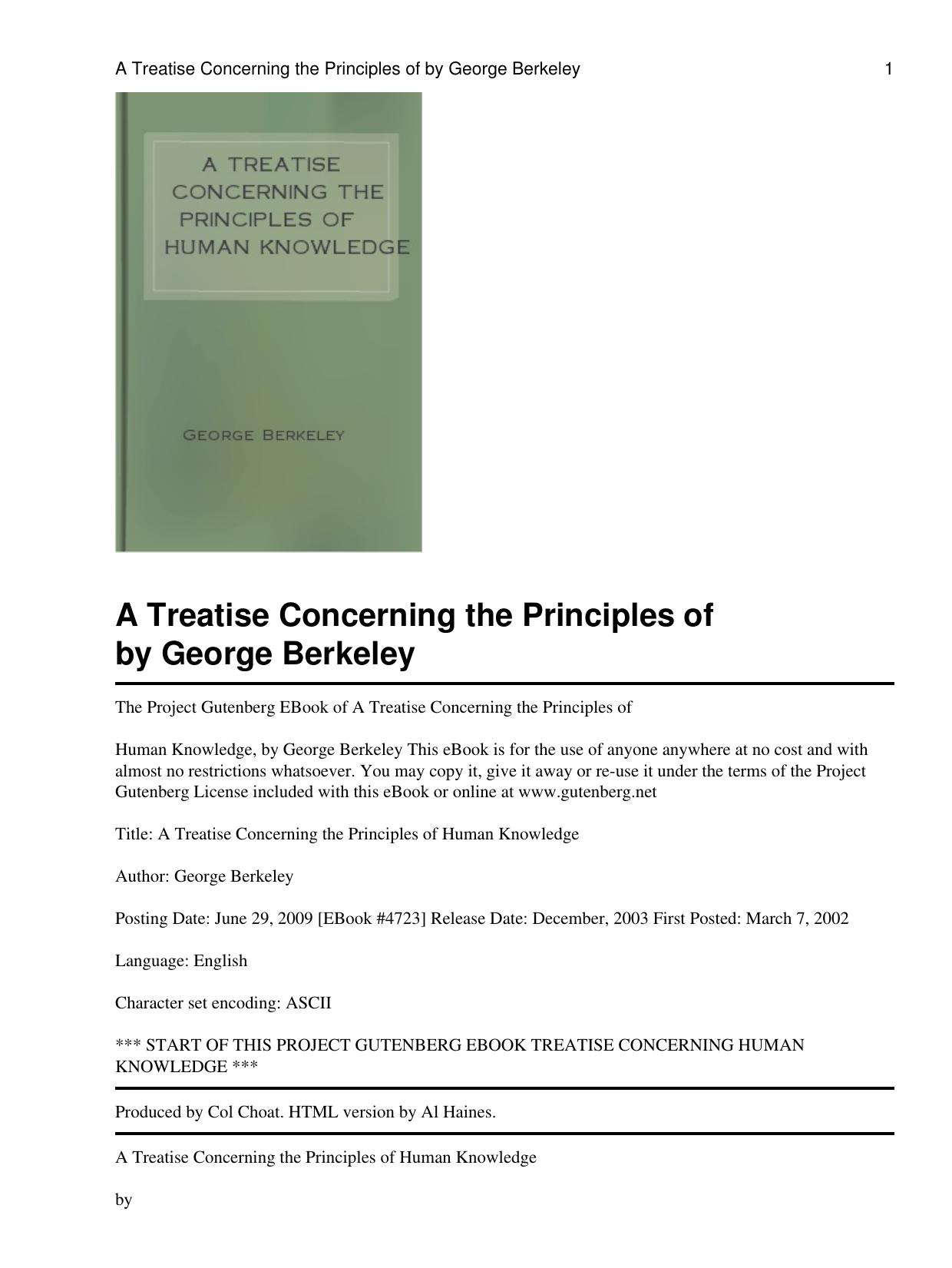A Treatise Concerning the Principles of Human Knowledge by George Berkeley

Author:George Berkeley [Berkeley, George]
Language: eng
Format: epub, mobi, pdf
Tags: Soul, Knowledge, Theory of, Idealism
Published: 2003-11-30T16:00:00+00:00
103. ATTRACTION SIGNIFIES THE EFFECT, NOT THE MANNER OR CAUSE.--The great mechanical principle now in vogue is attraction. That a stone falls to the earth, or the sea swells towards the moon, may to some appear sufficiently explained thereby. But how are we enlightened by being told this is done by attraction? Is it that that word signifies the manner of the tendency, and that it is by the mutual drawing of bodies instead of their being impelled or protruded towards each other? But, nothing is determined of the manner or action, and it may as truly (for aught we know) be termed "impulse," or "protrusion," as "attraction." Again, the parts of steel we see cohere firmly together, and this also is accounted for by attraction; but, in this as in the other instances, I do not perceive that anything is signified besides the effect itself; for as to the manner of the action whereby it is produced, or the cause which produces it, these are not so much as aimed at.
104. Indeed, if we take a view of the several phenomena, and compare them together, we may observe some likeness and conformity between them. For example, in the falling of a stone to the ground, in the rising of the sea towards the moon, in cohesion, crystallization, etc, there is something alike, namely, an union or mutual approach of bodies. So that any one of these or the like phenomena may not seem strange or surprising to a man who has nicely observed and compared the effects of nature. For that only is thought so which is uncommon, or a thing by itself, and out of the ordinary course of our observation. That bodies should tend towards the centre of the earth is not thought strange, because it is what we perceive every moment of our lives. But, that they should have a like gravitation towards the centre of the moon may seem odd and unaccountable to most men, because it is discerned only in the tides. But a philosopher, whose thoughts take in a larger compass of nature, having observed a certain similitude of appearances, as well in the heavens as the earth, that argue innumerable bodies to have a mutual tendency towards each other, which he denotes by the general name "attraction," whatever can be reduced to that he thinks justly accounted for. Thus he explains the tides by the attraction of the terraqueous globe towards the moon, which to him does not appear odd or anomalous, but only a particular example of a general rule or law of nature.
105. If therefore we consider the difference there is betwixt natural philosophers and other men, with regard to their knowledge of the phenomena, we shall find it consists not in an exacter knowledge of the efficient cause that produces them--for that can be no other than the will of a spirit--but only in a greater largeness of comprehension, whereby analogies, harmonies, and agreements are discovered in the works of nature, and the particular effects explained, that is, reduced to general rules, see sect.
Download
A Treatise Concerning the Principles of Human Knowledge by George Berkeley.mobi
A Treatise Concerning the Principles of Human Knowledge by George Berkeley.pdf
This site does not store any files on its server. We only index and link to content provided by other sites. Please contact the content providers to delete copyright contents if any and email us, we'll remove relevant links or contents immediately.
The remains of the day by Kazuo Ishiguro(7551)
Tools of Titans by Timothy Ferriss(6950)
The Black Swan by Nassim Nicholas Taleb(6192)
Inner Engineering: A Yogi's Guide to Joy by Sadhguru(5897)
Giovanni's Room by James Baldwin(5879)
The Way of Zen by Alan W. Watts(5800)
The Six Wives Of Henry VIII (WOMEN IN HISTORY) by Fraser Antonia(4791)
The Power of Now: A Guide to Spiritual Enlightenment by Eckhart Tolle(4756)
Astrophysics for People in a Hurry by Neil DeGrasse Tyson(4620)
Asking the Right Questions: A Guide to Critical Thinking by M. Neil Browne & Stuart M. Keeley(4576)
12 Rules for Life by Jordan B. Peterson(3734)
The Ethical Slut by Janet W. Hardy(3504)
Skin in the Game by Nassim Nicholas Taleb(3462)
Housekeeping by Marilynne Robinson(3402)
The Art of Happiness by The Dalai Lama(3385)
Double Down (Diary of a Wimpy Kid Book 11) by Jeff Kinney(3274)
Skin in the Game: Hidden Asymmetries in Daily Life by Nassim Nicholas Taleb(3264)
Walking by Henry David Thoreau(3234)
12 Rules for Life: An Antidote to Chaos by Jordan B. Peterson(3204)
